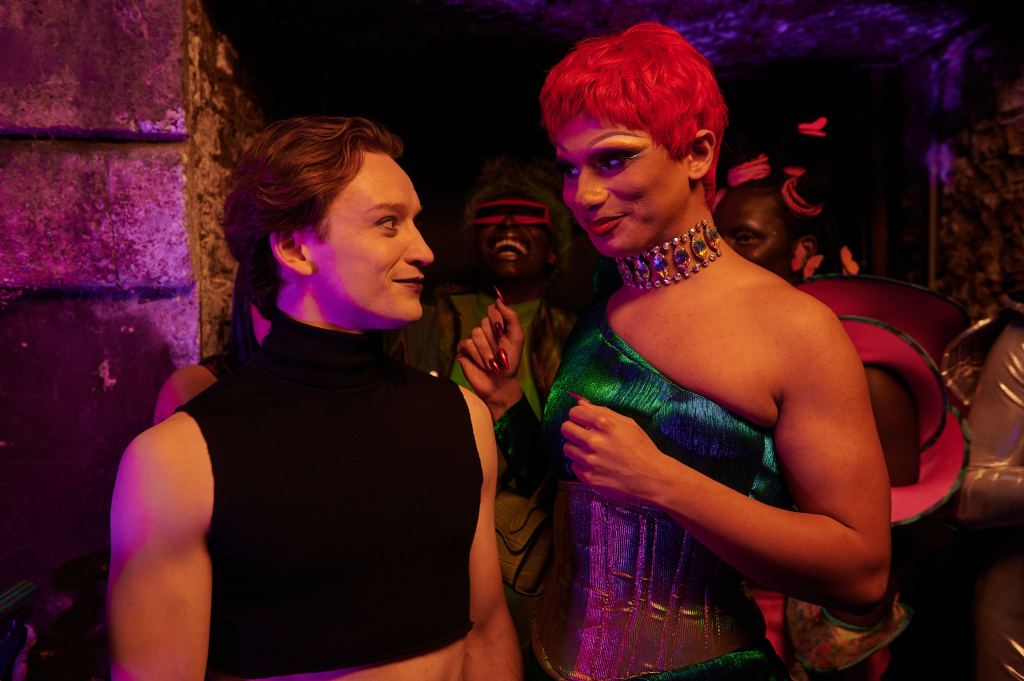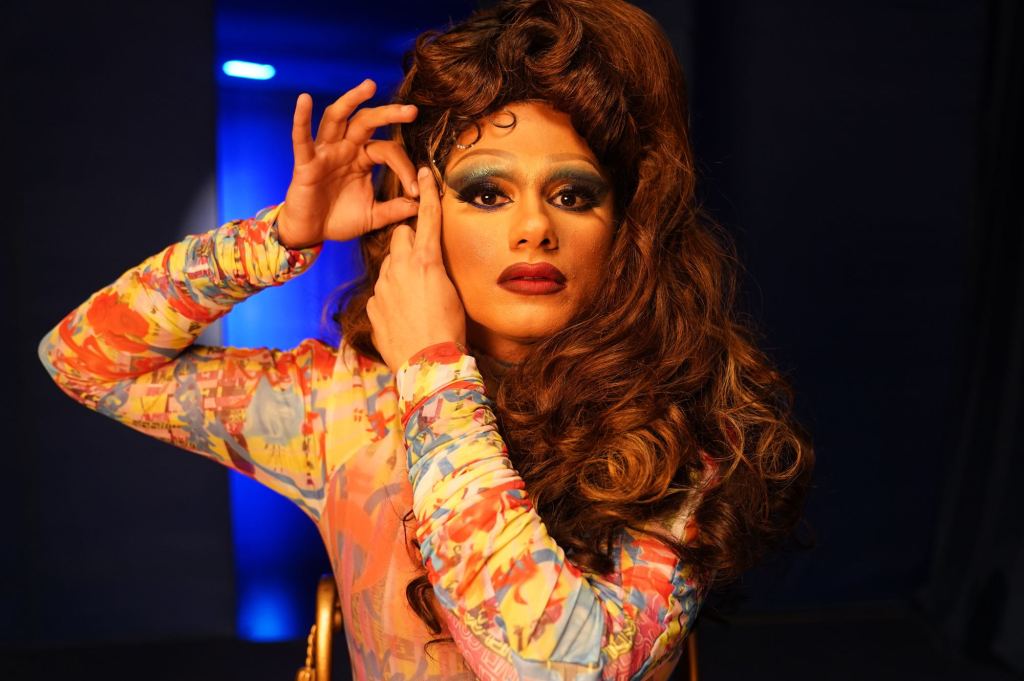Layla at London Film Festival review: Non-binary drag queen drama shines bright

Bilal Hasna as drag queen Layla in Amrou Al-Kadhi’s feature debut film Layla. (London Film Festival)
Bilal Hasna as drag queen Layla in Amrou Al-Kadhi's feature debut film Layla. (London Film Festival)
Writer-director Amrou Al-Kadhi’s feature film debut, Layla is a colourful drag queen drama.
The film chronicles Layla (Extraordinary‘s Bilal Hasna), a non-binary British-Palestinian drag queen, and their tumultuous relationship with marketing executive and turtleneck-lover Max (Last Tango in Halifax star Louis Greatorex). From star-crossed infatuation to feuding lovers, this drama captures conflicting relationships with queerness.
The pair meet when the drag queen’s performance at a corporate Pride party descends into a humiliation ritual. After becoming fed up with the gawking, Layla goes rogue on stage, resulting in them spreading meat sauce over their chest. Although it quickly derails the event, the antics catch the attention of Max.
While his colleagues belittle Layla, Max is intrigued and the spark of their first interaction spreads to a flickering flame that is mesmerising but constantly threatens to burn. The morning after, Layla wakes up alone and loses hope of ever seeing Max again. But as fate would have it, they bump into each other again, as if their connection is unavoidable.

They welcome each other into their beds and lives – particularly Layla, who bares their heart, while Max seems rather shifty. Layla chooses to brush off the red flags, including, but not limited to, Grindr notifications, incorrect pronouns, and his hot-and-cold attitude, which becomes especially prominent with Layla’s decision to reinvent themself.
In their queer world, Layla is a confident drag queen, but with Max, they begin to strip away the colour and swap glittering fabrics for grey button-ups.
The change extends to the film’s composition with bright, neon lights swapped for flat, monochrome tones. Such details in cinematographer Craig Dean Devine’s frames also bring nuance to this vibrant character study.
The division of Layla only multiplies when they visit their Palestinian family, where they become son Latif. Throughout these different worlds, the direction Al-Kadhi takes remains composed and empathetic, perfectly complimenting Hasna’s impressively layered debut film performance.
Hasna embodies a moving vulnerability and commits wholeheartedly to the role, balancing all the facets of Layla in and out of drag. Alongside the leading performances, Layla’s friends make fleeting appearances. Princy (Safiyya Ingar), in particular, is one of the more fleshed-out supporting characters who will defend Layla against the world but who fades into the background as the film pushes forward.

As they get together, break up, then fall back into bed together again, the relationship between the pair is marked by mounting tension. In one scene, as the lovers deepen their connection, Max discusses his love of octopuses.
“The male just inserts his penis and as soon as he’s done, he just runs off,” he tells Layla one evening, amused and fascinated by the transformative power of the creature.
Layla reaches a more nuanced take on the mollusc, using its shapeshifting expertise to explain their non-binary identity: they can constantly change and adapt. The metaphor, however, becomes rather clunky and wedged into the story for a satisfying conclusion.
When that ending does arrive, the credits roll with a lingering sense of hope: a hope for love and purpose that is fulfilling and not sacrificial. Al-Kadhi’s feature proves them to be an exciting new voice in British cinema with a film that celebrates drag’s transformative and endless potential.
Layla is being screened at the London Film Festival and is due in UK cinemas on 22 November.
Share your thoughts! Let us know in the comments below, and remember to keep the conversation respectful.

